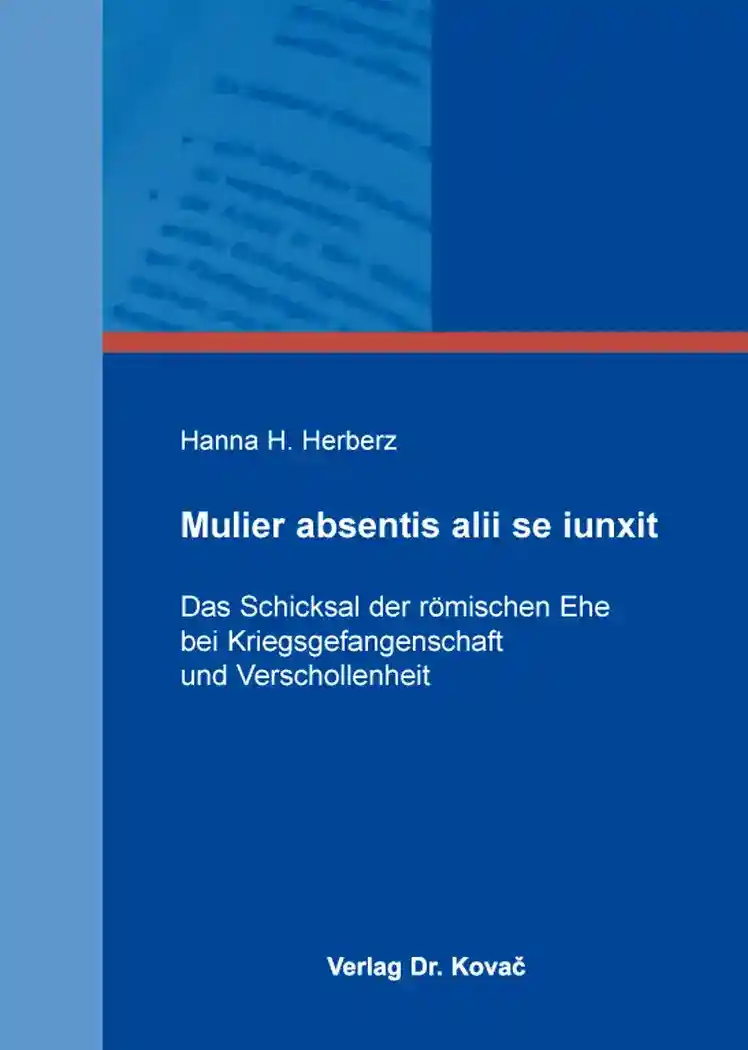Hanna H. HerberzMulier absentis alii se iunxit – Das Schicksal der römischen Ehe bei Kriegsgefangenschaft und Verschollenheit
Rechtsgeschichtliche Studien, volume 72
Hamburg 2015, 200 pages
ISBN 978-3-8300-8245-3 (print)
ISBN 978-3-339-08245-9 (eBook)
About this book deutschenglish
Disappearance has other consequences to roman law as to modern law. The declaration of death that we find in § 2 of the German “Verschollenheitsgesetz” enables the wife of a disappeared husband to organise and continue her usual life by allowing her to marry someone else. In classical roman law neither a declaration of death nor abstract rules for cases of disappearance did exist although disappearance was more present at that time. But in the Corpus Iuris Civilis we can find decisions of roman jurists in individual cases. If the wife of a captured or disappeared husband married another man and the first husband returned, it had to be decided, which of the two marriages was considered to be valid and whether the wife had to be punished as adulteress or not. To give an answer to these questions, the author analyses the classical roman marriage and its formation and dissolution as well as the particular consequences of captivity that leads to other results as disappearance. The canonical law however has to be considered separately as it regards marriage as indissoluble. The analysis of the canonical law leads to the question if there can be found canonical principles in postclassical roman law as the imperators of the late ancient world, in particular from Constantine I and on, had a new approach to nature and consistency of marriage and its need of protection.
